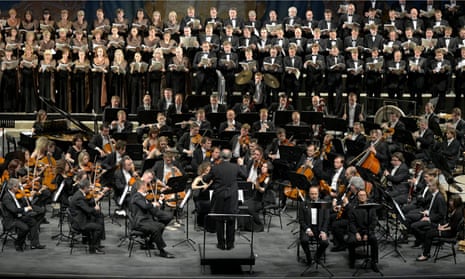The Wales Millennum Centre, now celebrating its 10th anniversary, has enjoyed a collaboration with Valery Gergiev’s Mariinsky theatre since it opened, and this concert performance of Prokofiev’s opera launched the finale to the 2014 cultural exchange that finds the St Petersburg company performing in force in London and Birmingham over the coming week.
Prokofiev’s choice of Richard Brinsley Sheridan’s The Duenna as the basis for an opera set in 18th-century Seville was curious, and stagings are not common, but acquaintance with the composer’s Classical Symphony is all that’s needed for an audience to feel at ease with the stylistic references, albeit closer to Mozart and Rossini than Haydn. And with the orchestra on stage, the musical jokes and lampooning came across clearly.
Even so, a concert performance, where the requisite tangle of disguises, mistaken identities and visual gags supporting the plot is rendered non-existent, made hard work of keeping track of the various pairs of lovers. Without surtitles it would have been impossible. So it speaks volumes for the comedic and vocal craft of Sergey Aleksashkin in the role of Mendoza, the rich fish merchant, and of the wonderful Larissa Diadkova as the Duenna of Sheridan’s original, that the farcical money-grabbing line could balance the matchmaking. Evgeny Akimov maximised the ridiculousness of Don Jerome, who hopes to gain financially from marrying his daughter to the insalubrious Mendoza. Yet, while the humour and occasional arias of the respective lovers stood up, the longeurs of the instrumental interludes did not.
And, where Gergiev had raced through the first two acts in the liveliest of manners, the second two dragged. The boozy chorus of monks was executed by the men of the Mariinsky chorus with practised glee, but the froth on this musical tipple was only just bubbly enough to sustain the evening.

Comments (…)
Sign in or create your Guardian account to join the discussion